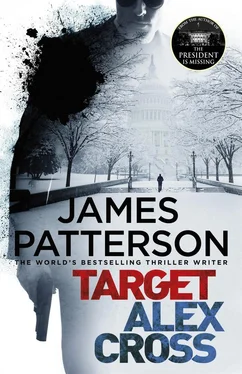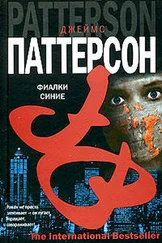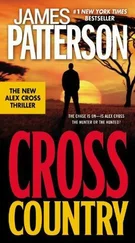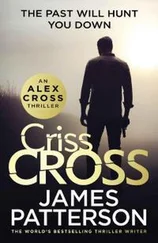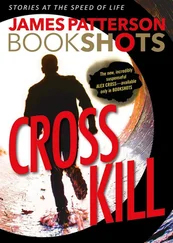“Jesus,” I said. “His service weapon?”
“Snapped in his holster.”
“So he was surprised,” Bree said. “Hit without warning.”
“Still,” I said. “The Sergeant Moon I remember was a fighting machine. You’d have to be one hell of a warrior to kill him.”
“That’s exactly what my friend said: a professional killed Moon.”
Thinking about the sniper who’d killed Senator Walker and then about Kristina Varjan, the Hungarian killer for hire spotted at Dulles Airport, I said, “As in an assassin?”
“He said Special Forces kind of badass, but sure, assassin would fit.”
Bree said, “No one saw the fight?”
“Happened way out in the middle of nowhere,” Sampson said. “But the state police may have gotten lucky.”
“How’s that?” I asked.
“Moon’s left hand, the one with the split knuckles. It had to have connected with one hell of a punch. There was blood evidence at the scene that wasn’t Moon’s.”
Bree said, “And there’s probably DNA on his knuckles. That helps.”
That did help, but in my gut, something churned, a sensation that grew the more I thought about the shooting expertise of Senator Walker’s killer, the CIA’s concerns about Kristina Varjan, and how one of law enforcement’s best self-defense men had turned up beaten and dead by his cruiser in a way that suggested a pro.
“Alex?” Bree said. “What is it? What are you thinking?”
I licked my lips before gazing at Sampson and Bree in turn.
“I’m thinking it’s odd that we’ve had two, maybe three professional killers around suddenly, and I’m feeling like they’re all here for some reason beyond Senator Walker and Sergeant Moon.”
Shortly after nine in the morning, Pablo Cruz pressed down the last strip of blue painter’s tape on the floor of an abandoned factory in the far northwest corner of Maryland. It was a vast space that had once held huge textile looms and massive cutting machines.
The machines had been removed and sold for scrap a long time ago, leaving the silhouettes of their footprints on the filthy concrete floor. Cruz barely glanced at them. He studied the maze of tape he’d been laying down since the afternoon before.
The maze stretched almost the entire length of the space, more than one hundred and twenty-five yards by the range finder Cruz had brought in to help him transfer dimensions from old blueprints onto this factory’s floor.
Looking from the blueprints to the tape diagram, he thought he’d come close, probably within inches of the actual spaces he’d be dealing with the day after tomorrow.
Day after tomorrow, Cruz thought, feeling a thrill go through him and checking his watch.
Cruz tried to ignore the second thrill that shivered up his spine. This would no doubt be the pinnacle of his career. The crowning achievement.
If he survived.
That last thought sobered him, yanked him out of fantasy and back to the task at hand. He zipped his down coat up under his chin and saw his breath in the cold air as he studied the maze once again. Then he closed his eyes and tried to see it in his mind, tried to imagine himself moving through all the various hallways, rooms, and passages.
When he’d gotten halfway through, he stopped imagining and opened his eyes.
He’d been studying the diagrams so much, Cruz felt ready to go at least that far. Halfway. Just to see what he’d already memorized. He got out a phone, found the stopwatch, and started it.
He walked confidently to marks indicating steps and climbed them to a guarded door. He would have the proper identifications. They would put him through a metal detector and find nothing.
They would pat him down, probably find the resin webs around his forearms and wrists, but he had a perfect excuse. They would search his bag, but they would recognize nothing. They would let him through.
With that certainty firmly in mind, Cruz proceeded, still at that steady, relaxed pace, until he reached a large square room in the maze. He slanted to the opposite corner of the room, and another passage. There he broke into a jog, as if he’d needed to be somewhere five minutes before.
When he reached a T, he broke left, crossed the mouth of an even larger space, and started to slow as he moved toward the mannequin from the storage unit. He’d set it up at the intersection of two passages.
If he had to shoot early, it would be here.
Cruz walked confidently, hands out, palms up, toward the mannequin. Ten feet shy of it, he snapped the fingers of his left hand back toward his wrist.
A Kevlar-reinforced nylon bullet slammed into the mannequin’s throat and blew out the back of its neck.
Cruz did not stop to admire the destruction. Instead, he pushed on, reloading the graphite derringer and trying to see if he remembered the diagram past midpoint.
He went to a closet in the maze, gave himself sixty seconds to change clothes and credentials, and then hurried up another long passage. He hesitated at a door on the right and looked ahead a moment before going inside.
After waiting for ninety seconds exactly, Cruz exited the room, turned right again, then took two lefts and went through imaginary double doors into the largest space yet, so big he hadn’t bothered to tape it all in. He made his way toward the far-right corner, where a second and a third mannequin stood. In his mind, Cruz imagined the place packed and him shifting and slipping his way forward.
Cruz stopped fifteen feet to the right of the mannequins and waited, a smile on his face, his left hand poised as if resting on the shoulder of someone in front of him.
Cruz laughed, bobbed his head, extended his right hand in welcome, and then snapped his fingers back sharply. The web stretched and triggered the second single-shot gas derringer. It fired with a thud, and the nylon bullet penetrated the mannequin’s chest and knocked it to the ground.
A moment later, he fired the left-hand derringer at the rear mannequin and hit it square in the chest.
Cruz clicked the stopwatch on his phone and saw that nine minutes and eleven seconds had elapsed. He started the clock again, stayed cool as he backed up, slow, deliberate, then turned and headed back through the maze the way he’d come.
In the long hallway, Cruz broke into a slow jog. When he reached the mannequin with the hole in its neck, he stopped for fifteen seconds, then moved on, running fast now, and was soon back at the entrance to the schematic.
Cruz stopped the clock; his hard breathing left clouds pluming in the frigid air. Six minutes and fourteen seconds coming back. Fifteen minutes and twenty-five seconds total.
That will do it, he thought, and he stared at the door that led outside the factory.
Cruz shook off the idea that he was ready and told himself to run the route at least twenty more times. He had enough time to practice until he could do the whole thing blindfolded or in the dark. Before resetting the stopwatch and starting again, he decided he would do both.
Ned Mahoney pulled over at the curb and pointed diagonally across a busy street past a dingy strip mall to the Happy Pines Motel in suburban Gaithersburg, Maryland.
The Happy Pines was one of those no-tell joints you could rent by the hour, day, week, or month. A thirty-unit, two-story affair, the motel was badly in need of renovation, and the rain and gray skies made the place look even drearier than it was.
But according to Mahoney, a woman named Martina Rodoni bearing a Eurozone passport had registered at the Happy Pines two days before. Even though our contact at the CIA said there was zero chance Varjan would use the identity again, we decided to drive out to see if they were one and the same.
Читать дальше
